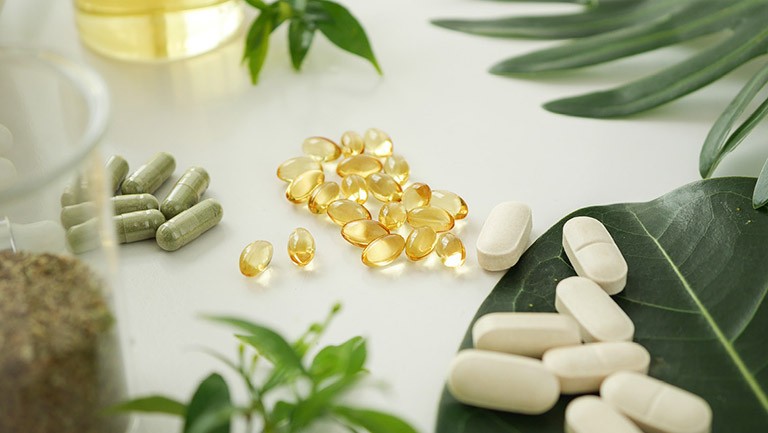Uncategorized
Are Supplements Safe? What You Need to Know Before Taking Them
Are Supplements Safe? What You Need to Know Before Taking Them
Supplements are a multi-billion-dollar industry, offering solutions for everything from boosting energy to improving skin health and aiding weight loss. But with their growing popularity, safety concerns have emerged. Are supplements truly safe, and how can you ensure you’re using them responsibly?
This guide dives into the safety of dietary supplements, potential risks, and key tips for making informed decisions.
What Are Dietary Supplements?
Dietary supplements include vitamins, minerals, herbs, amino acids, and enzymes designed to complement your diet. They come in various forms such as capsules, powders, gummies, and liquids, and are used to:
- Address nutritional deficiencies
- Support specific health goals
- Improve overall well-being
While supplements can provide benefits, understanding their safety is crucial.

The Regulatory Landscape of Supplements
Unlike prescription medications, dietary supplements are not subject to the same rigorous testing by regulatory agencies like the FDA before hitting the market. Instead:
- Manufacturers are responsible for ensuring product safety and label accuracy.
- Post-market surveillance identifies adverse effects, but this often happens after consumers report issues.
This lighter regulation underscores the importance of consumer awareness when choosing supplements.
Common Risks Associated with Supplements
1. Contamination or Mislabeling
Some supplements have been found to contain unlisted ingredients, including harmful substances like heavy metals, pesticides, or pharmaceuticals.
2. Overdose and Toxicity
Exceeding recommended doses of certain nutrients can lead to toxicity. For example:
- Vitamin A: High doses can cause liver damage and birth defects.
- Iron: Excessive intake may result in gastrointestinal issues or organ damage.
3. Drug Interactions
Supplements can interact with medications, potentially reducing their effectiveness or causing dangerous side effects. For instance:
- St. John’s Wort: Can interfere with antidepressants or birth control pills.
- Calcium: May reduce the absorption of certain antibiotics.
4. Allergic Reactions
Herbal and botanical supplements may trigger allergic responses, particularly in individuals sensitive to specific plants.
How to Ensure Supplement Safety
1. Choose Reputable Brands
Select products from manufacturers that prioritize quality and transparency. Look for:
- Third-party certifications: NSF International, USP, or ConsumerLab.
- Clear labeling: Ingredients, dosage, and potential allergens should be listed.
2. Consult a Healthcare Professional
Before starting any supplement, especially if you:
- Are pregnant or breastfeeding
- Have underlying health conditions
- Take prescription medications
Your doctor can help identify potential risks and recommend safe options.
3. Stick to Recommended Dosages
More isn’t always better. Adhere to the dosage instructions on the label, and avoid combining similar supplements that could lead to excessive intake.
4. Be Cautious with Herbal Supplements
Herbs can be powerful but aren’t suitable for everyone. Research potential side effects and interactions before use.
5. Monitor for Side Effects
If you experience adverse effects like nausea, headaches, or changes in mood, discontinue use and consult a healthcare provider.
Supplements vs. Whole Foods
Supplements can fill nutritional gaps, but they shouldn’t replace a balanced diet. Whole foods offer a complete nutrient profile and additional benefits such as:
- Fiber: Supports digestion and heart health.
- Phytonutrients: Found in plants, these compounds have protective health effects.
Relying too heavily on supplements may lead to nutrient imbalances or a lack of other essential dietary components.

Who Should Be Extra Cautious?
Certain groups should exercise heightened caution when using supplements:
- Children: Their nutrient needs differ significantly from adults.
- Older Adults: Age-related changes in metabolism can affect supplement absorption.
- Athletes: Mislabeling risks are higher with performance-enhancing supplements.
- Pregnant and Nursing Women: Some ingredients may harm the baby.
Red Flags to Watch Out For
- Miraculous Claims
Products promising instant weight loss, cures for chronic diseases, or extreme results are often misleading and potentially dangerous. - Unclear Ingredients
Avoid supplements with proprietary blends that don’t disclose exact ingredient amounts. - Poor Packaging
Damaged or improperly sealed packaging may compromise the product’s safety.
The Role of Supplements in a Healthy Lifestyle
Supplements should be viewed as part of a comprehensive health strategy that includes:
- Balanced Diet: Focus on nutrient-dense foods like fruits, vegetables, lean proteins, and whole grains.
- Regular Exercise: Promotes physical and mental well-being.
- Adequate Sleep: Crucial for recovery and maintaining overall health.
Popular Myths About Supplement Safety
Myth 1: Natural Means Safe
Not all natural ingredients are harmless. For example, high doses of herbal supplements like kava or ephedra can cause liver damage or heart issues.
Myth 2: More Is Better
Taking excessive amounts of vitamins or minerals can lead to toxicity and adverse health effects.
Myth 3: FDA Approval Guarantees Safety
While the FDA regulates supplements to some extent, its role is primarily reactive. Consumers must still exercise caution and do their research.
Final Thoughts
Supplements can be a valuable tool for improving health when used wisely. By choosing high-quality products, consulting healthcare professionals, and incorporating them into a balanced lifestyle, you can minimize risks and maximize benefits.
At Primebestpremierms, we are committed to providing safe, high-quality supplements that prioritize your health. Explore our trusted products today and take the next step toward a healthier, more informed you!


